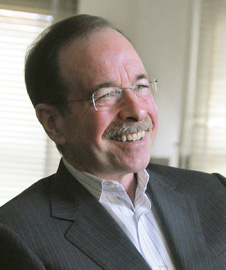3Qs: Airline regulations should be grounded

In August, new airline regulations from the U.S. government will go into effect. They include refunding passengers checked bag fees if luggage is lost, increasing the compensation bumped passengers receive and imposing time limits on how long planes making international flights can wait on the tarmac. Steven Morrison, professor and chair of the Department of Economics at Northeastern University, who studies the airline industry, examines these regulations and the state of the airline industry since the economic downturn.
What is your take on these new regulations?
My general reaction is that the primary policies that the government should pursue regarding airlines is not to specify how they should treat passengers in certain instances, but rather to make sure there is sufficient competition, and thus choice for passengers. That way, passengers can vote with their wallets about which airline policies they prefer and which to pay for.
Airlines were deregulated in 1978, ending the government’s authority over specifying what fares they could charge and which routes they could run. But there is always this notion, in all phases of life, that, “There ought to be a law.” Airlines are no different than any other industry. It’s more important to ensure there is competition and let the market work, and make sure consumers have all the information they need to make decisions for themselves.
Are airlines charging customers more fees nowadays than in years past?
There are more fees now because the product has become unbundled. You used to be able to book flights that would come with food, checked bags and your choice of any seat in coach. Now you pay more for food or a seat with more legroom. Airlines call it “a la carte” pricing, and it’s understandable for airlines to issue these charges in their scramble to generate as much revenue as possible in an uncertain economic environment. But it’s important that passengers know what they’re getting charged for.
What is the state of the airline industry’s financial situation?
They are certainly doing better. The primary longstanding problem the airline industry has faced is aligning capacity with demand over the business cycle. What typically happens in an economic downturn is the airlines are stuck with too much capacity. So they will offer discounts. Then the economy turns around, and airlines aggressively add seats and end up with too much capacity again. But over the last several years, airlines have been extremely disciplined with capacity additions and taking capacity out of service. So fares are going up significantly because the economy is improving and airlines have been retrained regarding capacity. In addition, fuel prices are now rising.
Summer is the peak pleasure travel season, and fares are generally lower during this time of year. But they will be higher than they have been in past summers for these reasons I’ve mentioned.